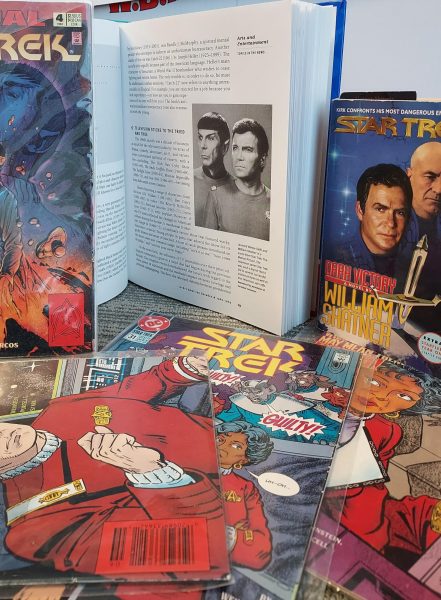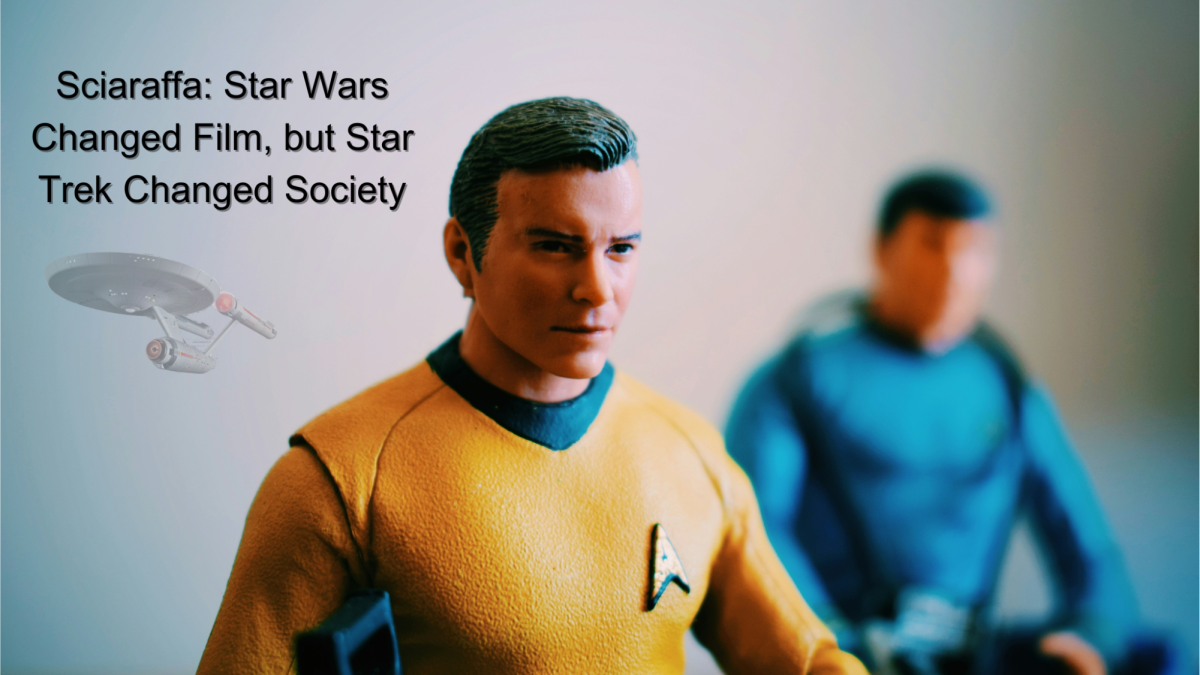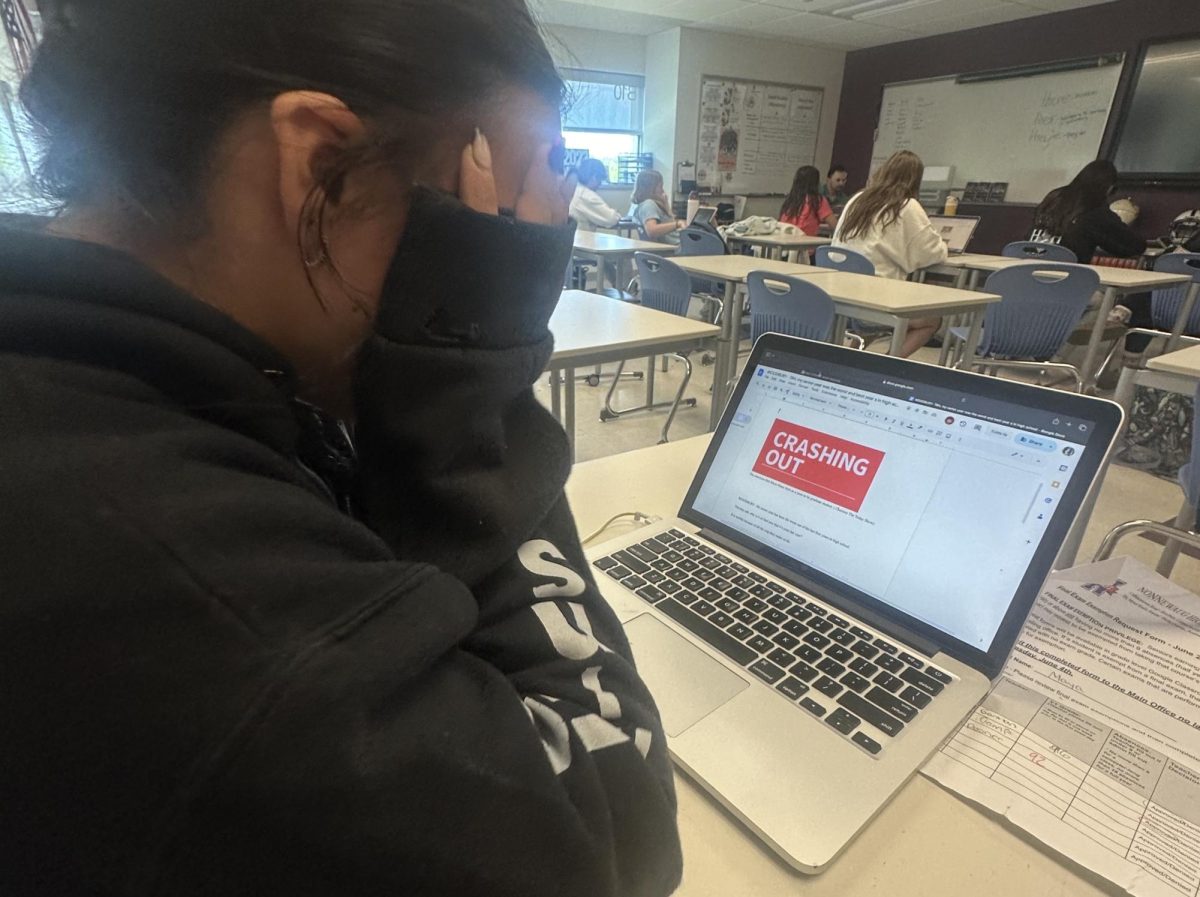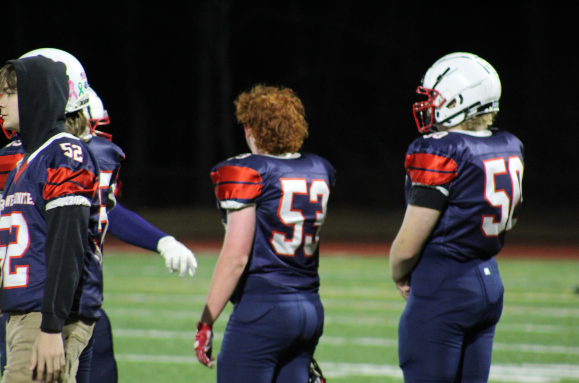Space: the final frontier. During the voyages of the Starship Enterprise, not only were strange new worlds explored, but a whole new way people viewed the world around them was discovered. Star Trek boldly pushed the limits of what is acceptable to be put on screen, with episode topics being not so subtle when alluding to real world issues.
Star Trek is a popular science fiction series created by Gene Roddenberry, made in the mid 60s, and centered around the crew of the Starship Enterprise in the far year of 2266. Since then, there have been several spin-offs: 13 movies, a reboot movie series, and several non-canon books. Being around for so long, this sci-fi adventure made more of an impact than you might think.
“I think some of the episodes are seen as less controversial today, but weirdly, some of them are probably more controversial,” said Benjamin Guerette, an instructor at Nonnewaug who watched Star Trek since he was a kid. “Political stuff shifts, but the show holds up pretty well, I think. I can’t think of any episodes that are wholly irrelevant today.”

Star Wars was made about ten years after Star Trek. Being hailed as one of the greatest sci-fi films, I don’t think it equals the cultural impact of Star Trek.
Before anyone says I’m biased, I grew up on Star Wars while I watched Star Trek more recently. My brother is a die-hard Star Wars fan, and I watched all the movies and some shows with him.
My experiences of being a huge nerd and interacting with other huge nerds, I feel Star Trek wormed its way into more than just our grandparents’ memories.
“All of the stories centered around what it meant to be human—but human in the most ambitious way,” said Guerette. “It was about civilization, but an ideal version of civilization.”
All the different spin-off series, even the original series in 1966, had a diverse cast of actors that pushed the bounds of what was normal for that generation. Disabled characters, people of color, and planets with different religions were all included in the sci-fi adventure.
Nichelle Nichols played Lieutenant Nyota Uhura in the original series, who was a smart, competent, and loyal communications expert on the Enterprise. She was happy to show a black woman on screen in a good light, and was excited to have such creative freedom when playing and creating Uhura.
Nichelle Nichols is not the only woman in Star Trek, being only one of the many female characters that are valued and have important jobs. Having women participate in a mostly male dominated field like astronomy, even now, is a big deal.
Star Trek had a mostly female dominated demographic, and most of the old fan clubs were run by young women. This show inspired some young girls to feel more confident in their love of math and science, allowing them to push through glass ceilings.
Current topics were also portrayed through the characters. Ensign Pavel Chekhov, security officer of the ship, is a Russian crewmate. Back when the Soviet Union and Cold War were both looming concerns, this was a weird site to see on tv.
“It was groundbreaking for television to have all races together as a unified cast,” said William Michael, media technology instructor at Nonnewaug High School. “The fact that they had a Russian representative working alongside the Americans showed the visions of we are all now working as Earthlings and left behind our identities that divide us.”
Star Trek also shared the honor of being one of the first television shows to clearly show an interracial kiss, when Captain Kirk dipped and kissed Lieutenant Uhura. This almost got the show taken off the air, but Gene Roddenberry said it was important to show how people will evolve beyond racism in his vision of the future.
Themes of unity and equality are not uncommon in Star Trek. It helps normalize differences, and cuts down the arbitrary walls that divide us. People can see themselves in the characters and see those characters unafraid to work with each other. This is an easy way to change people’s perceptions about others.
Star Wars is a transcendent story about vengeance, redemption, and blood in the water, but it’s also just another dystopian film series made to show the bad side of humanity. Star Trek gives us more hope for the future, and gives us hope that people will follow in its footsteps and unite as a planet and people.
If there’s one thing Trekies would agree on in regard to the show’s immeasurable power, it’s the show’s ability to change the world. Make it so.











